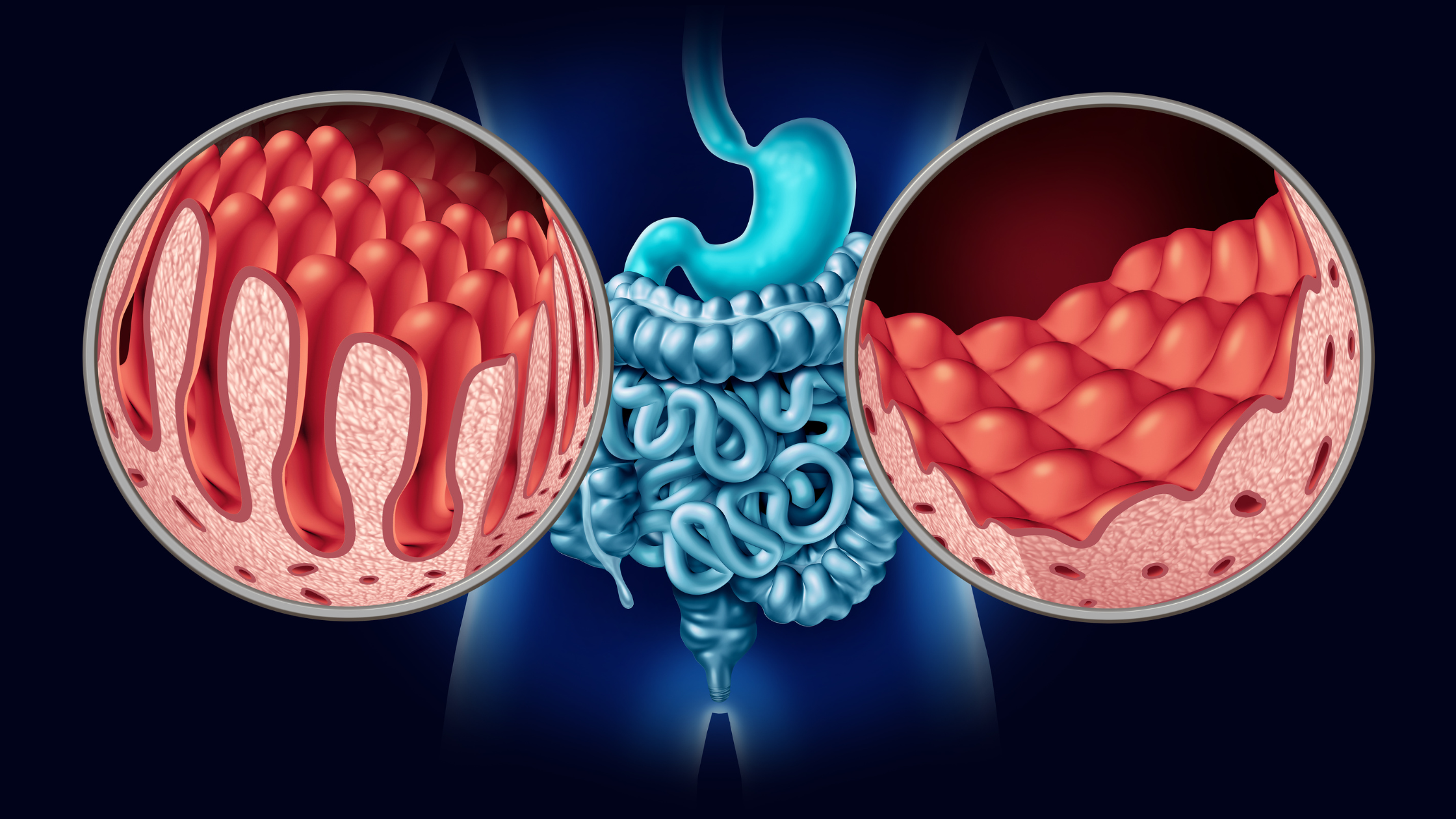Can You Develop Celiac Disease Later in Life? Symptoms, Diagnosis, Treatment
Written by TYE Medical on Aug 22nd 2023
Celiac disease isn’t only a young person’s condition as once thought but can instead strike at any age. And while instances of celiac disease are on the rise, there is also an increasing number of elderly onset cases. Even if you once tested negative for celiac disease, it’s possible a test later in life could reveal the disease. The condition was once largely unknown but since as many as 1 in every 133 Americans may have it, media exposure has brought it into focus. You now regularly see gluten-friendly recipes and several gluten-free options on popular restaurant menus. It’s now becoming a part of the American consciousness.
But what are the symptoms and how is celiac disease different in senior adults? Let’s take a closer look at what you might be dealing with in your golden years.
What Is Celiac Disease?

It’s an autoimmune condition that affects your gastrointestinal (GI) tract. If you have celiac disease, the protein gliadin, commonly found in wheat, rye, barley, triticale, and some processed foods triggers your immune system to attack your small intestines. Specifically, it’s the villi, or fingerlike projections, that line the wall of your small intestine that come under fire. These villi are key to nutrient absorption, which is why untreated celiac disease can lead to major health complications and malnutrition.
Elderly onset celiac disease applies when the condition begins when you’re over age 65.
What Are Signs and Symptoms of Celiac Disease?

It’s important to note that some people don’t experience obvious intestinal symptoms after eating gluten. And some celiac symptoms in seniors and the elderly are different from symptoms in younger patients.
Common Symptoms of Celiac Disease
- Diarrhea
- Iron deficiency (anemia)
- Changes in weight (weight loss in younger people)
- Fatigue
- Cramps (pain)
- Breathlessness
- Bloating
- Skin conditions (rashes)
- Irritability
- Osteoporosis
- Malnutrition (lack of nutrient absorption)
Celiac Symptoms More Common in Seniors
- Obesity
- Constipation
- Cognitive impairment (thinking affected)
- Neuropathy
Seniors and those with elderly onset celiac disease will likely still experience some of the common symptoms of their younger counterparts, but they are also more likely to suffer from these age-specific symptoms.
Keep in mind that there are over 200 possible celiac and gluten intolerance symptoms and many of them are common to other health complications. That’s why testing is important. If left untreated, celiac disease can seriously damage your digestive tract, prevent nutrient absorption, contribute to cardiovascular disease, and cause a host of complications throughout your body.
Why Do People Develop Celiac Disease Later in Life?

The rise in later life celiac disease has the medical community theorizing about why. It’s apparent that you can eat gluten for most of your adult life without difficulty, even undergo testing for celiac disease, and despite negative results, still face a diagnosis in your later years.
Some of the common theories suggest that changes in your intestinal bacteria as you age could trigger an autoimmune response if you’re predisposed to celiac disease. This would explain why your immune system behaved itself in previous years. This relates to your gut health, a popular topic in the medical community in recent years. Many things can change your intestinal bacteria, including infections, antibiotics, stress (death of a spouse or loved one), and other impactful physical or emotional events.
Others say that it’s due to your aging immune system. Once you hit 40, your immune system is considered aged and less efficient, making it more susceptible to a variety of conditions, including autoimmune disorders like celiac disease.
Diagnosis and Treatment

While testing for celiac disease exists, most people are not correctly diagnosed in the early stages. This is especially true when you develop celiac disease later in life. Especially as an older adult, your symptoms are likely to be attributed to the aging process without much consideration for possible underlying causes. Your symptoms may be blamed on common gastrointestinal problems in older adults. Therefore, your symptoms are treated but not the cause.
But reliable testing exists for celiac disease. Blood tests can identify specific antibodies that react badly to gluten. A positive blood test result is just the first step. Doctors confirm the diagnosis by performing a biopsy of your small intestine to check for damage.
But don’t cut out gluten before testing. Blood tests can only detect the presence of gluten antibodies if there is gluten in your system. So continue to eat your typical diet before testing. Only cut out gluten if your doctor confirms the diagnosis.
The only effective treatment for celiac disease is to eliminate gluten-containing foods from diet. Removing the autoimmune trigger not only stops or reduces your symptoms, but it also gives your gut time to heal. When gluten is removed from your diet, your intestines can begin healing the damage from immune system attacks.
Treating Celiac Symptoms

After cutting gluten from your diet, it will take some time for your small intestines to heal and begin absorbing nutrients again. In the meantime, you can take supplements to compensate for the lack of nutrition your body is receiving from foods. Your doctor can help you determine which nutrients you’re most lacking in.
You may also need medications for certain symptoms, especially skin conditions. Your doctor may recommend dapsone to treat dermatitis herpetiformis, commonly referred to as the “gluten rash” or “celiac rash”. This skin condition can be itchy or causes burning sensations, and sometimes medications are necessary to bring relief.
Your doctor may also prescribe corticosteroids if you have severe inflammation in your body due to a gluten reaction. And routine follow-up visits to your doctor will be necessary to ensure that the condition is under control.
Going Gluten Free Later in Life

Take heart–going gluten free today is far easier than just ten or fifteen years ago. You’ll find no shortage of gluten-free options in stores and restaurants. And living gluten free is far more affordable than in previous years. As demand has increased, prices have come down. But you can expect to pay a little more for products that cut out gluten.
Perhaps the best approach is to purchase naturally gluten-free foods as much as possible. Sure, you’ll still want to enjoy a plate of spaghetti and can opt for gluten-free spaghetti noodles. But there are plenty of naturally gluten-free foods to choose. Gluten-free whole grains like rice, quinoa, millet, and buckwheat (not actually wheat) are healthy options.
And be sure to carefully read labels on all prepackaged foods. Gluten is often used as a food additive because it acts as a binding agent. This means you’ll find gluten added to products that you never would have imagined. And foods that naturally contain gluten (like breads) often contain added gluten also.
Because it could be a little overwhelming or confusing at first, it’s a good idea to work with a dietician that is experienced with celiac disease and gluten intolerance.
Celiac Disease and Other Autoimmune Disorders

If you have one autoimmune disorder, it’s not uncommon to develop another. Typically, whatever is triggering one condition can also trigger a different reaction in your body. And the immune response and inflammation associated with celiac disease can trigger other autoimmune conditions like:
- Rheumatoid arthritis
- Hashimoto’s thyroiditis
- Multiple sclerosis (MS)
- Sjogren’s Syndrome
- Type 1 diabetes
- Lupus
This is not a complete list but includes the most common and recognizable conditions associated with celiac disease. Untreated celiac disease can also lead to certain types of cancers like:
- Non-hodgkin lymphoma
- Melanoma
- Thyroid cancer
- Cancer of the esophagus
- Cancer of the small intestines
If you have been diagnosed with celiac disease, it’s imperative for your health that you eliminate all gluten from your diet even if you have no other symptoms or symptoms don’t return. Internal damage can still be done even if you don’t experience symptoms.
Celiac Disease or Gluten Intolerance/Sensitivity?

You might wonder what the difference is between celiac disease and gluten sensitivity or intolerance. The simple answer is that celiac damages your intestines because of an autoimmune reaction but a sensitivity or intolerance does NOT damage your intestines, stomach, or other organs.
If you have non-celiac gluten sensitivity, you may test negative for celiac disease but still experience many of the digestive and non-digestive symptoms of celiac disease. Many of the symptoms are the same, such as:
- Bloating
- Gas
- Diarrhea
- Constipation
- Fatigue
- Brain fog
- Depression/anxiety
- Pain
- Brain fog
- Headaches or migraines
If you test negative for celiac disease but have noticed a connection between eating gluten and your symptoms, you could have non-celiac gluten sensitivity or sometimes called gluten intolerance. If you are gluten sensitive, it’s still best to cut out gluten to avoid symptoms, not stress your body, and minimize inflammation that can lead to other illnesses.
You can develop a gluten sensitivity later in life as your body naturally becomes less tolerant of gluten proteins. Some people are more prone to this condition than others.
Recap: Dealing with Gluten Issues Later in Life

If you suspect gluten is problematic for you, be sure to talk with your doctor and set up time for testing. Remember not to change your diet and continue eating gluten as you normally would during the time leading up to the test. Your doctor will likely request a biopsy of your small intestine if your blood tests come back positive for celiac disease.
If you’re diagnosed with celiac disease later in life, understand that your body changes with the passing years. It’s best to accept the diagnosis and take all necessary steps to eliminate gluten from your diet. This is the best way you can protect your health now and for the future. Avoiding gluten and allowing your body to heal can help prevent many other conditions and nutritional deficiencies associated with celiac disease.
TYE Medical offers premium incontinence products in a variety of sizes and absorbency levels. Shop our online store for discreet and free shipping on all orders.


